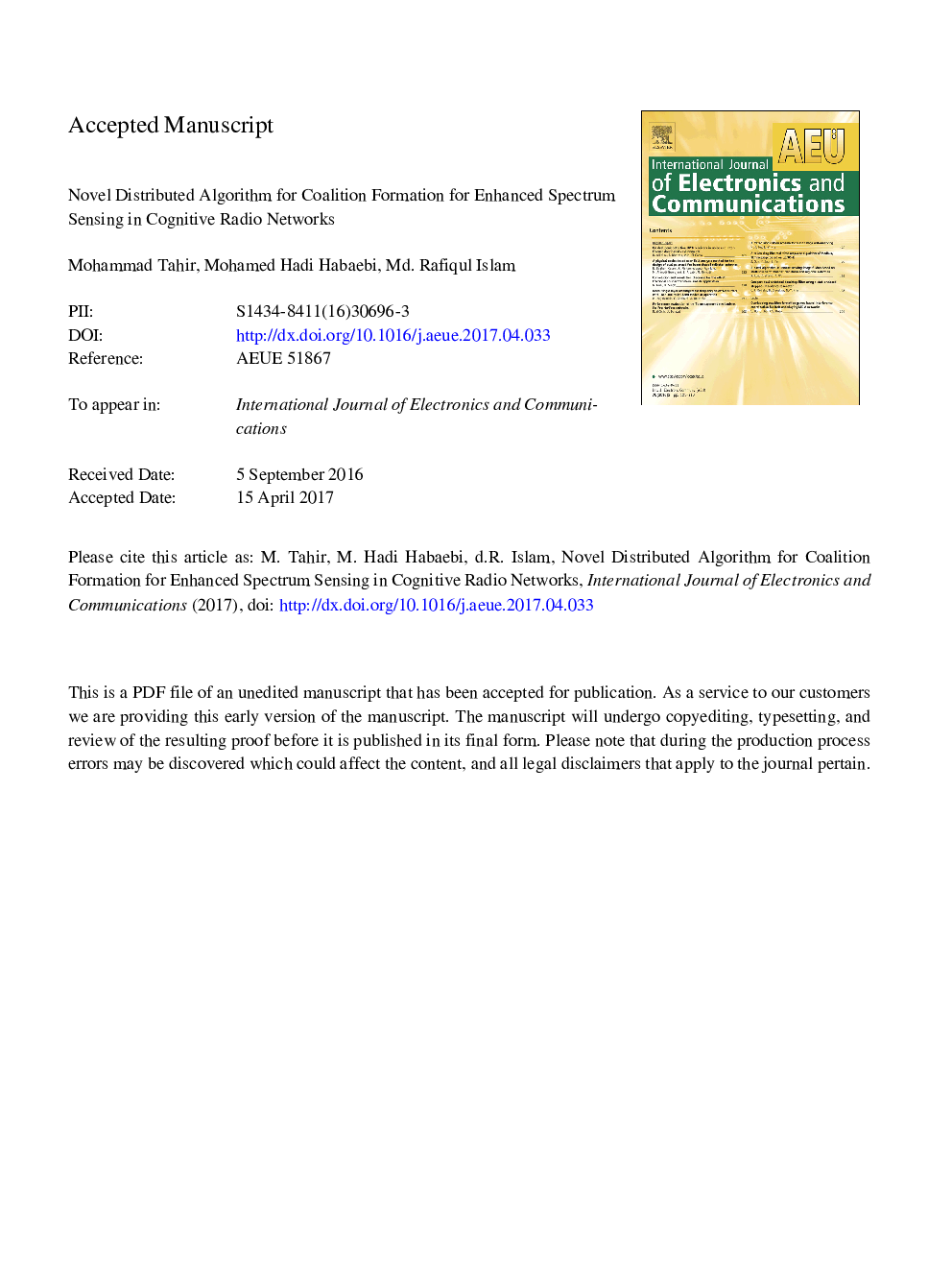| Article ID | Journal | Published Year | Pages | File Type |
|---|---|---|---|---|
| 4953912 | AEU - International Journal of Electronics and Communications | 2017 | 16 Pages |
Abstract
In this paper, we propose a novel algorithm for improving spectrum sensing in cognitive radio networks by forming coalitions among cognitive radio users in a fading channel environment. We use concepts from matching theory, specifically the stable marriage problem, to formulate the interactions among the cognitive radio users as a matching game for collaborative distributed spectrum sensing under target detection probability constraint. The utility function is defined as the average probability of false alarm per cognitive radio user. The advantage of stable marriage is that it always converges to a stable matching and is Pareto optimal when the preferences of cognitive radios are strict. In the proposed model, we extend the stable matching problem to propose a novel algorithm to form coalitions of varying sizes for improving the utility of cognitive radios (false alarm and throughput). The coalitions formed using the algorithm are stable and do not deviate from the final matching. We show using simulations that the proposed algorithm leads to stable coalitions and returns significant improvement in term of reduced probability of false alarm and improved throughput per cognitive radio user as compared to the non-cooperative scenario.
Related Topics
Physical Sciences and Engineering
Computer Science
Computer Networks and Communications
Authors
Mohammad Tahir, Mohamed Hadi Habaebi, Md. Rafiqul Islam,
